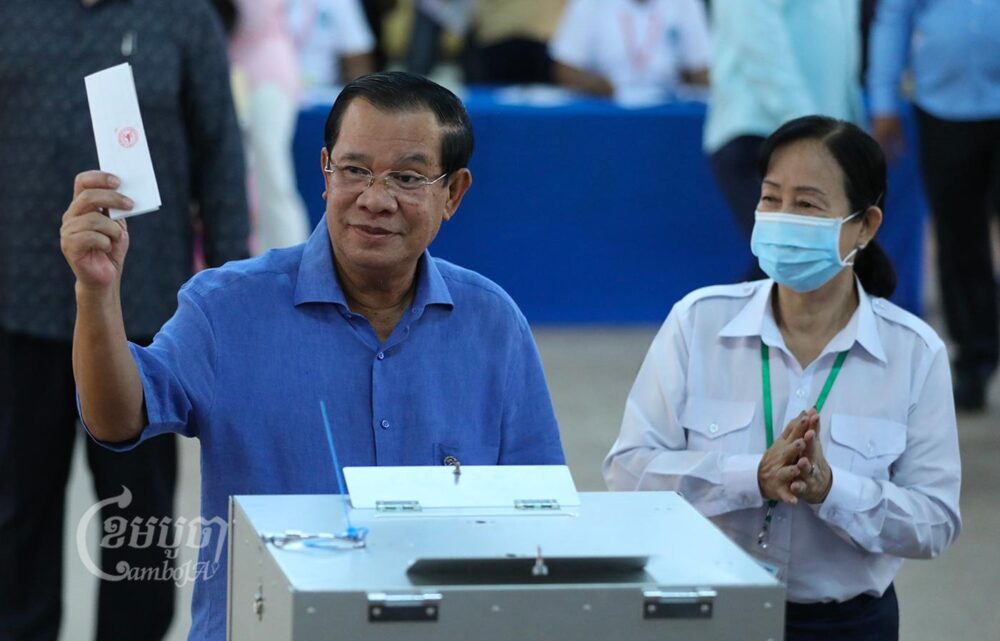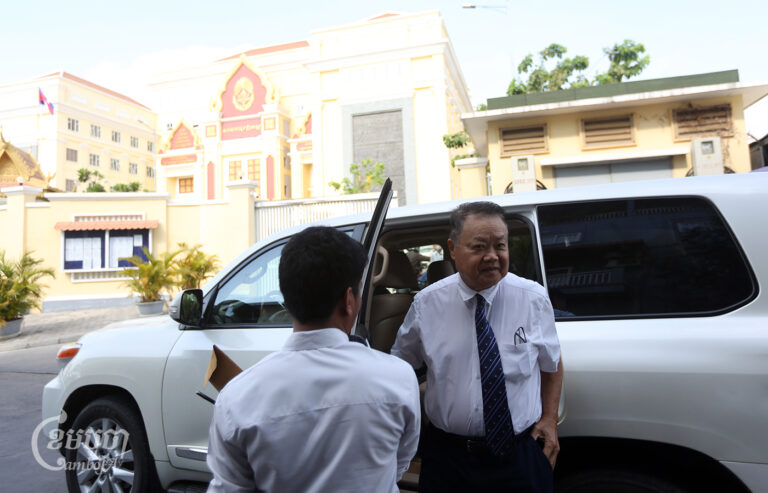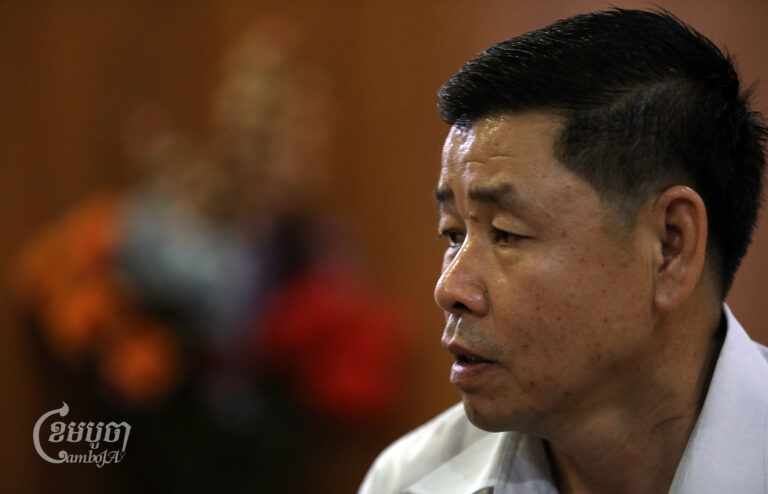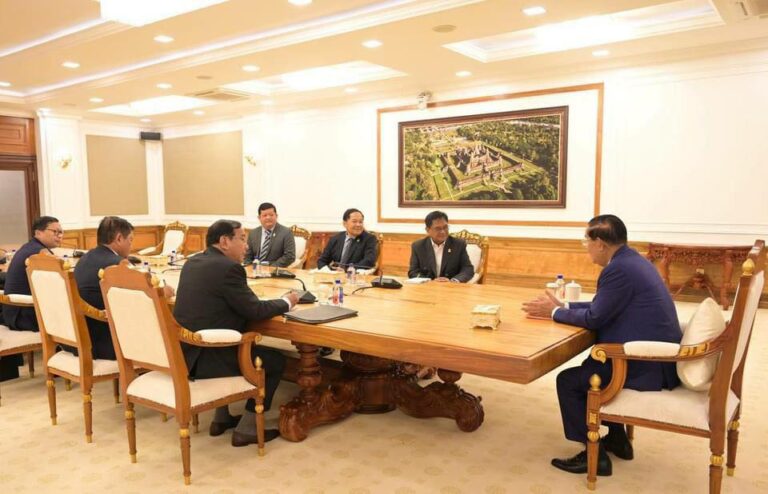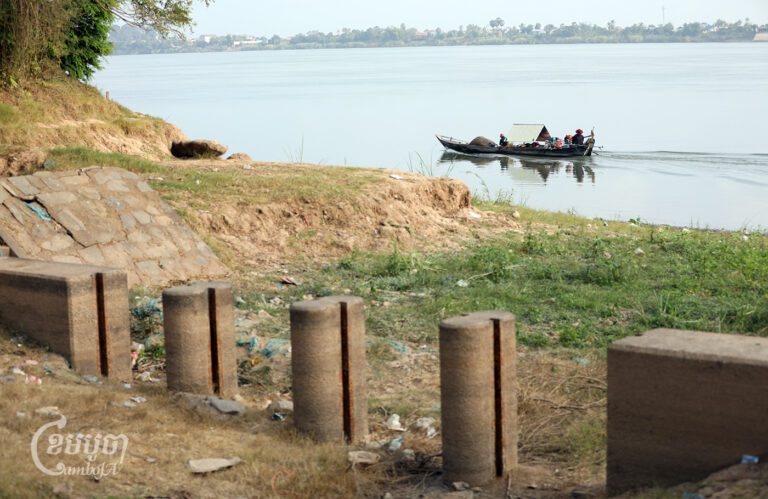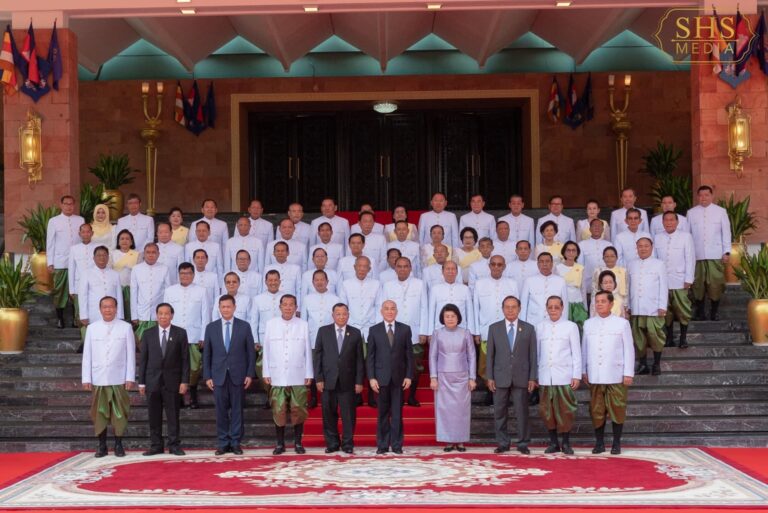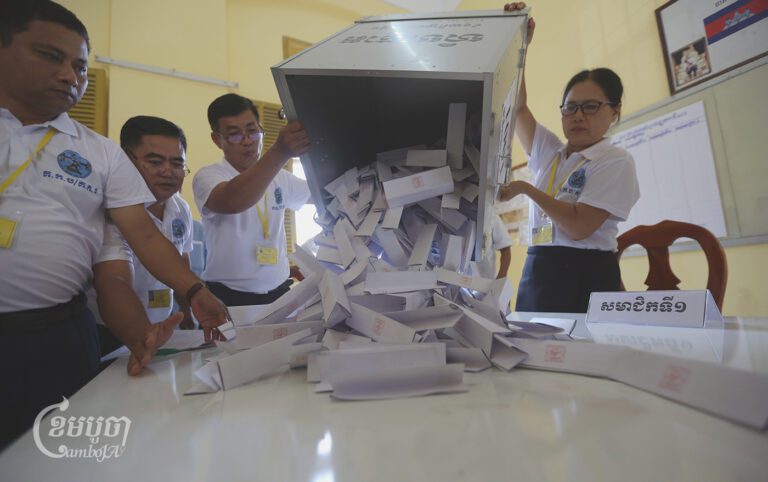After the leading opposition Candlelight Party was officially disqualified from participating in the national elections, Prime Minister Hun Sen said on Friday that he thought the party’s leaders had secretly botched their registration to generate political pressure from the international community.
The National Election Committee had disqualified Candlelight on the grounds it had not provided an original copy of its 1998 registration document, a decision upheld Thursday by the Constitutional Council. Candlelight leaders have claimed the document was lost when authorities raided the party’s headquarters in 2017.
“Regarding the birth certificate [the party’s 1998 registration document], I did not believe it was lost,” Hun Sen said during a meeting with garment workers in Phnom Penh. “It may be with someone who is the leader.”
“Their purpose, which I analyze here, is that they do not want this party [Candlelight] to participate in this election because they know it will lose,” he added. “But what they really want is for the foreigners to put pressure on Cambodia.”
The decision to block Candlelight from participating in the elections led the US State Department to condemn Cambodia’s “undemocratic actions” and announce that it will not send official observers to monitor the July 23 national elections. The US said it was following assessments from “independent Cambodian and international experts” that the elections will be “neither free nor fair,” according to a Thursday statement.
The NEC, the Constitutional Council and the Interior Ministry — responsible for issuing the document for Candlelight — are all headed by members of the ruling CPP’s Central Committee.
On May 23, Hun Sen told foreign embassies to keep quiet about Cambodia’s affairs.
“On behalf of the head of the executive body [government] of the country’s territorial sovereignty, why do you [foreigners] like meddling in internal affairs in my country,” Hun Sen said.
In his Friday morning speech, Hun Sen explained that Candlelight was able to register in the more than 1,000 communes for the sub-national elections last year with a photocopy of its 1998 document and that this had been “an exception” allowed at the time.
“Do not let this mistake happen again and again,” he said, adding that he also did not understand why the party had been allowed to participate in the commune elections either, but that it was according to the law.
He added that he had not threatened to arrest or take legal action against Candlelight’s supporters but had been concerned for the country’s peace and stability.
“[I] told you that I did not allow this kind of action to occur because the Southeast Asian Games were happening,” he said. “If you did, your national and sub-national leaders would be arrested, and I told the prisons to prepare the space for them.”
“Do not say I threatened,” he said. “This was for the peace of the country and stability; I must do it.”

Candlelight spokesperson Kimsour Phearith did not respond to requests for comment.
In its May 25 statement, the US State Department added: “We strongly urge Cambodian authorities to reverse course to ensure their citizens can participate in a fair, multiparty democracy consistent with the Cambodian constitution and freely exercise their human rights, including freedoms of association, peaceful assembly, and expression without fear of reprisal.”
Ruling CPP spokesperson Sok Eysan said the United States does not understand the root cause of Candlelight’s disqualification, which he said was because the party failed to provide a required document.
“Elections in Cambodia depend on Cambodian people who have decided, and whether they will recognize or not, it is their issues and foreigners are just outsiders,” he said.
He said the US had made similar statements about the 2018 elections, where the CPP won all 125 seats in the National Assembly after the Supreme Court dissolved the leading opposition party CNRP, Candlelight’s predecessor.
NEC spokesperson Hang Puthea said that it is the right of the United States not to send official observers to monitor the election.
“It is a separate issue whether they [international] recognize the legitimate election because Cambodia does for Cambodia itself,” he said. “NEC cannot accept any pressuring and we are still remained to do our job,”
“For Cambodia, the political environment is being carried out smoothly as 18 political parties are preparing to participate [election]” he said. “The election is carried out in line with Cambodia’s laws, so international law cannot measure [election].”
Candlelight earned more than 20% of the popular vote in the commune elections.
The remaining opposition parties collectively won less than 4% of the popular vote.
UN experts on Thursday also urged Cambodian authorities to “ensure an inclusive, genuine, and peaceful electoral process.”
The experts also concluded that the NEC’s actions “appear to have discriminated against one or more of the country’s main political parties.”
The Japanese ambassador to Cambodia Asushi Ueno stated Thursday that “it is important to have an environment in which the opinion of the people, whether they are from the ruling party or opposition parties, are widely reflected in the political process.”
The Japanese embassy said in March that it “does not have plans” to send official elections observers to Cambodia or provide financial support for the elections, media outlet Cambodianess reported.
Following the NEC’s May 15 decision to reject Candlelight’s registration, the European Union stated “Democratic elections demand open, inclusive and credible political competition” but has not issued an additional statement.
The French and UK embassies also issued statements after the NEC’s decision but as of Friday morning have not made further public statements about the Constitutional Council’s Thursday ruling.
As of now, the NEC said it has officially recognized over 29,000 national election observers.
Neutral and Impartial Committee for Free and Fair Election in Cambodia (NICFEC) executive director Sam Kuntheamy said that his organization would still send 40 observers to monitor the July elections but was struggling with human resource capacity.
Kuntheamy said that he wants to see more parties in the upcoming election.
“It has affected citizens’ rights that the party some loved cannot run ahead in the election,” he said. “We regret that a popular opposition party cannot participate in the election.”


